Mujaddid IOS Centre for Arts and Literature organises discussion on Contemporary Literature, Journalism and Artificial Intelligence
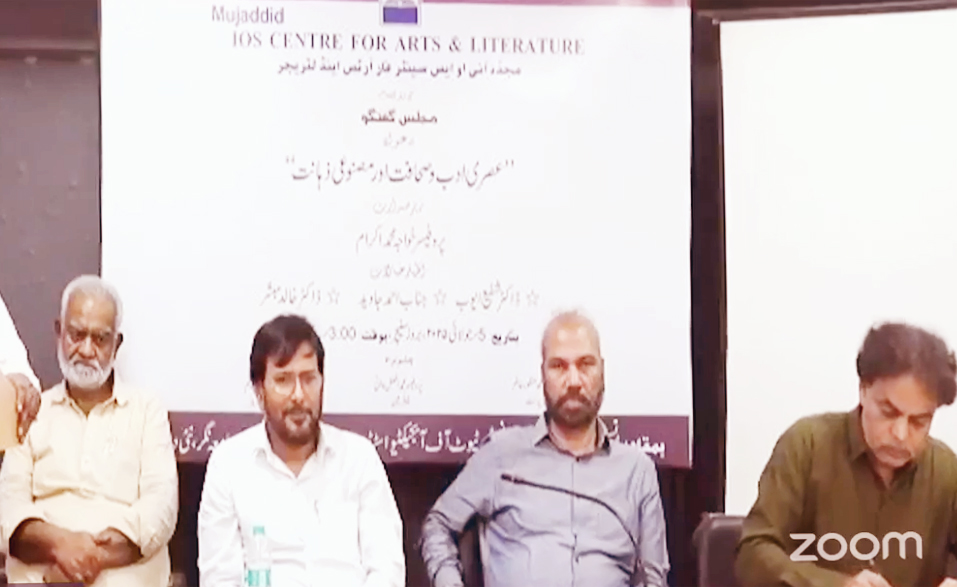
Mujaddid IOS Centre for Arts and Literature organises discussion on Contemporary Literature, Journalism and Artificial Intelligence
New Delhi: A discussion on “Contemporary Literature, Journalism and Artificial Intelligence” was organised by the Mujaddid IOS Centre for Arts and Literature on July 5, 2025.
The discussion began with the recitation of a Qur’anic Verse by Mr. Mansoor Ahmad, in-charge of the computer section of the IOS.
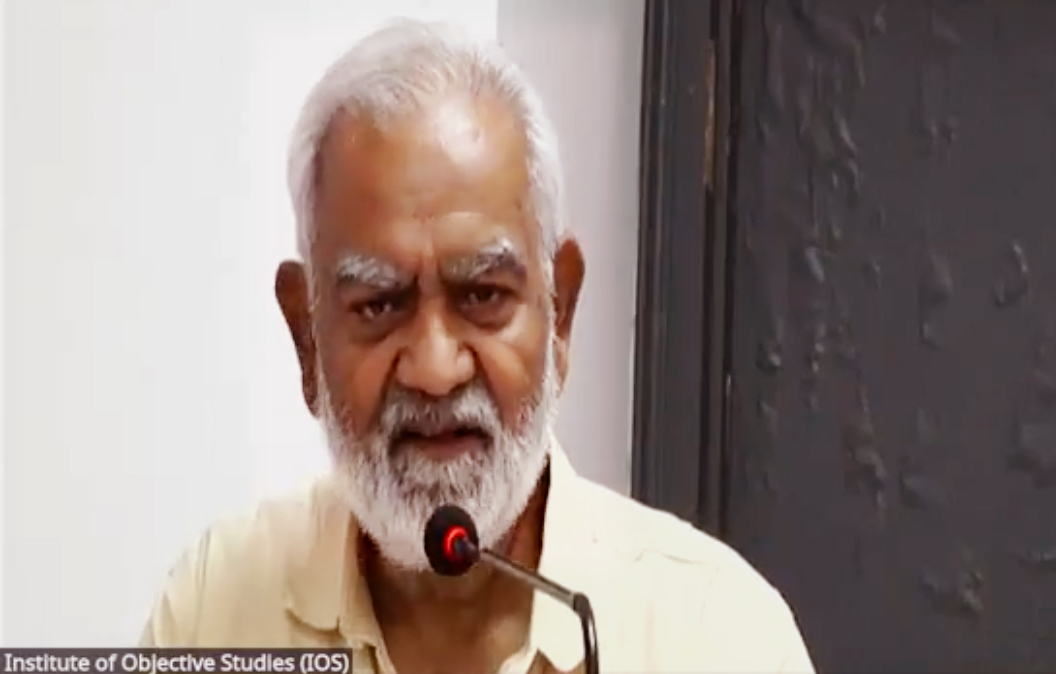
Convenor of the discussion, Anjum Naim, in his introductory remarks said that it was part of the programmes of similar nature organised by the Centre in the past. Referring to the Artificial Intelligence (AI), he observed that it had pervaded deep into our life. It was part of computer science that has widened the scope of technology. It had also given a fillip to our daily life. It had the power to read complicated things. It would prove more beneficial to the human kind. AI had created impactful means of progress and vistas of development. It correctly answered the questions put to it. He opined that those who were unable to express themselves might take help of AI. He noted that it had succeeded in giving a new impetus to literature. He questioned that whether AI is an alternative to human brain or a supportive element?
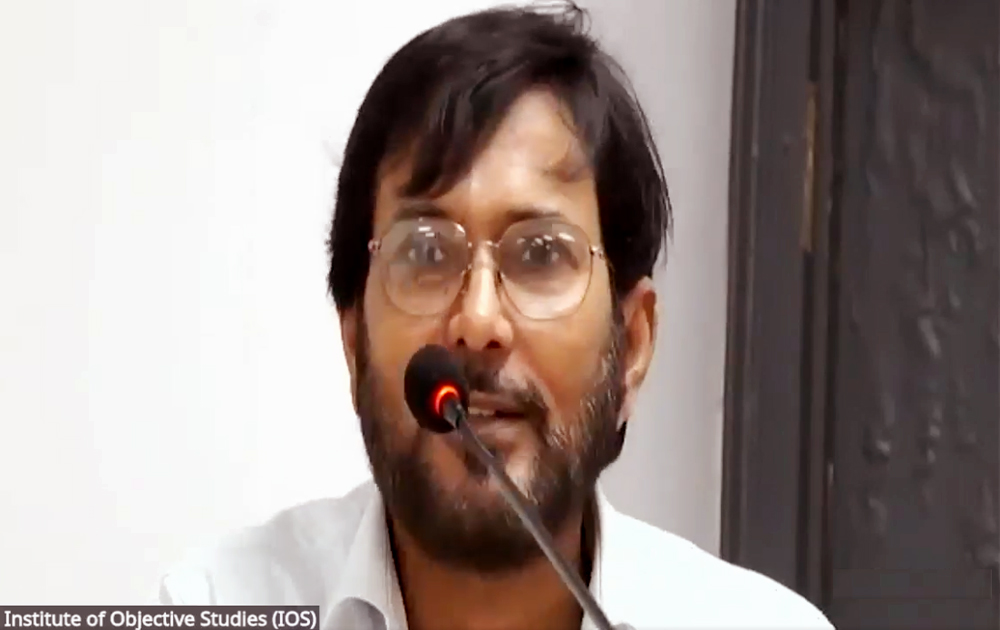
Prominent writer, critic and senior Urdu journalist, Mr. Ahmad Javed, held the AI was a good and debatable issue of our times. In a nutshell, the work being done by men earlier was being done by machines today. Referring to the fundamentals of AI, he said that it could be understood with the help of experts. He noted that he understood the AI to some extent. AI came into prominence in the year 2000. Google was one of its tools which was oldest. It was said that google had not correctly translated the content. But the new device was more accurate. He expressed the fear that AI might replace man. The fear was that the machines did the work without break for 24 hours, and this might render many jobless. Today, AI was being used on a large scale. AI had been fully and successfully doing the job in medical and educational fields. It had the power to diagnose diseases. Nowadays, machines were doing printing, embroidery work and making bundles of newspapers. Earlier, dozens of persons (labourers) used to make bundles of newspapers, but now machines were doing that job. They were editing or creating content for users. He said that a portrait created by the AI was sold for 4.32 lakh dollars.
Mr. Javed said graphics created by AI are available in books today. Thus machines will replace work done by humans. AI can create content and print it in book form. We should not feel frightened by such developments. There is the need for making efforts so that such sources do not dry up. The silver lining is that the AI has not so far dominated content of Ghazals which could go against the Ghazals. He described AI as a big library. Then the question arose if the AI could select rich content instead of poor content. In an answer to this question, he said that the Urduwallahs should make maximum use of Net and AI tools.
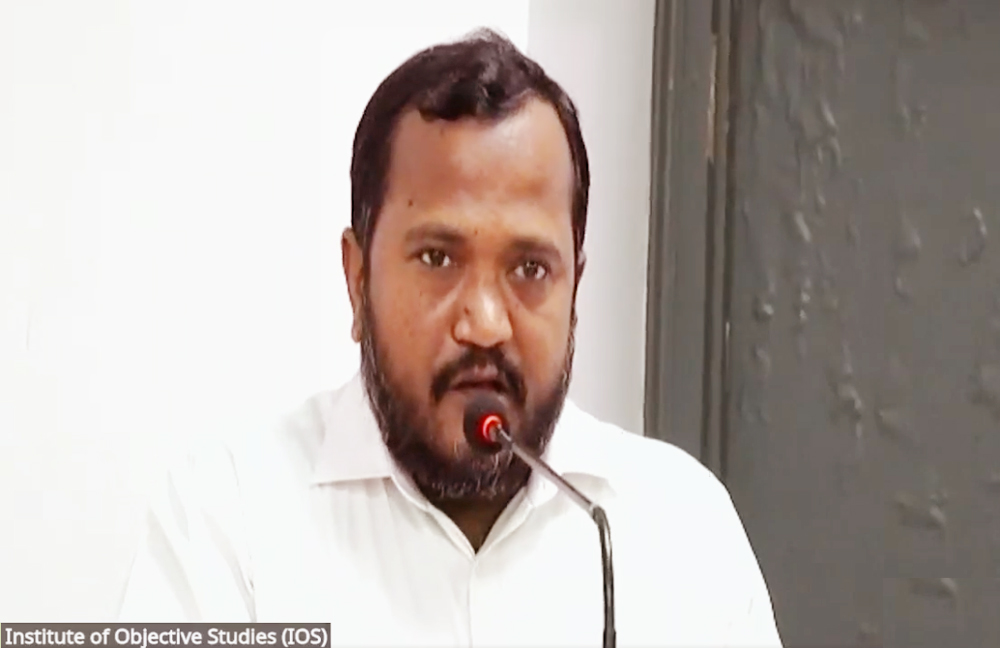
Dr. Khalid Mubashir, assistant professor of Urdu, Jamia Millia Islamia, New Delhi while saying that he was not an expert of the AI, said that he was still a student of the AI. As a student, he felt that machines did not have values like a human mind had because of the lack of feelings. But the things have since changed due to fast and accurate results AI provides to its users. It presents everything at the blink of the eye. GPT presented the required content. However, it could not become sensual and creative because these traits developed over a period of centuries. He said that AI could not create the grandeur of Ghalib or Sauda. AI could not employ sense in collecting data from the outside. There were several such issues which were difficult to address at the moment. He also said that chat GPT could write but not feel. Since AI is coming, we must ponder over how it could be positively used. We could not remove AI because it had become a part of daily life, he added.
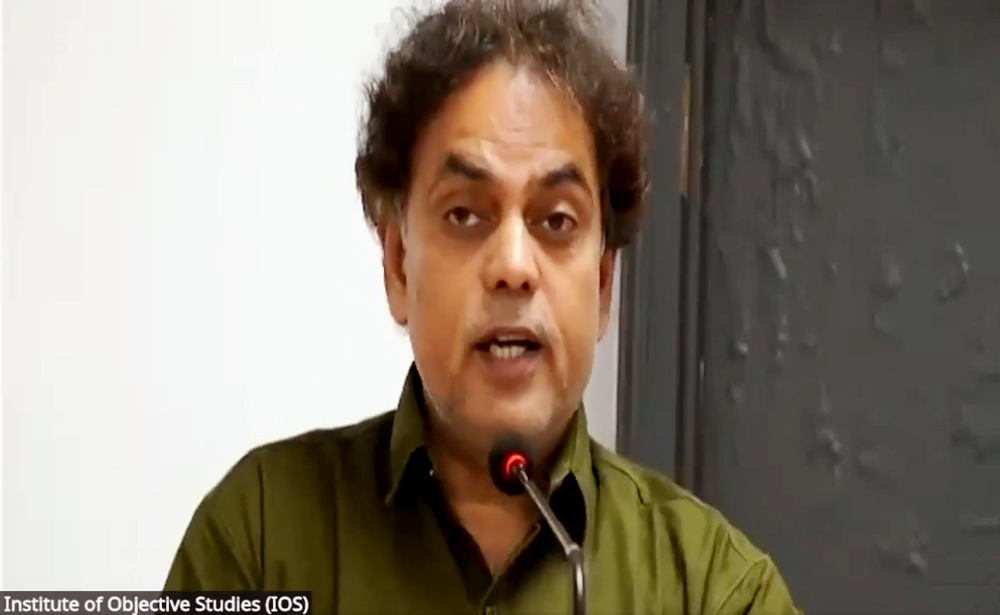
Dr. Shafi Ayub, who teaches language and journalism at the Centre for Languages, Jawaharlal Nehru University, held that this was the age of AI. “We did not bring it, nor we could stop or confront it”, he said. He also said that AI will never provide data which is not available at the Net. He admitted that some problems cropped up while adopting new things because these were associated with one’s mind. The AI analysed Net and Web by integrating them. A doctor from the All India Institute of Medical Sciences (AIIMS, Delhi) described Grok as a friend. He asked the grown-ups to use mobiles. He said AI is analysing our lectures and the written word. AI is not our rival, but our helper. Every new thing should be adopted. Nobody could cause harm to us by stealing our data because our data is safe and preserved. AI is a big source of income which runs into trillions of dollars. He called for taking help of AI in journalism also.
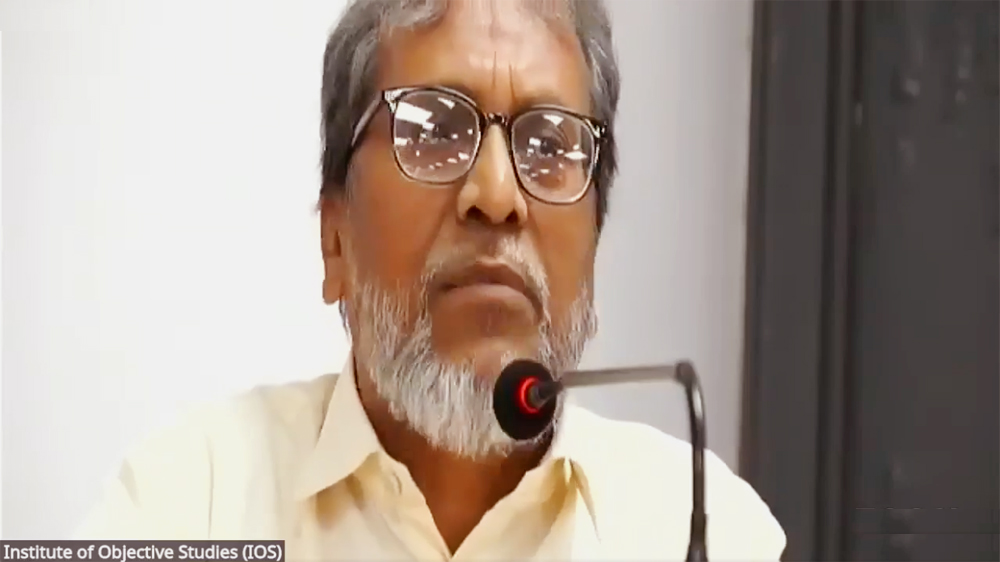
Former Voice of America (VOA) correspondent in Delhi and senior Urdu journalist and writer, Mr. Suhail Anjum, echoed the same views and said that the AI had two aspects. They were both positive and negative. One should make positive use of AI. AI was also being used for creating fake things. There may be apprehension at some point of time that the Grok could not differentiate between what is correct and what is false. He observed that every innovation has to pass through agony. There was certainly a difference between the computer and a book. He emphasized that every new thing should be welcomed otherwise one could lag behind in the race of life.
.jpg)
Presiding over the discussion, Prof. Khwaja Ikramuddin Ahmad, Director, Centre for Languages, Jawaharlal Nerhru University (JNU) pointed out that the association of man with machines was not new. This association was old as civilisation and would remain till the end. He said that the changes creeped without notice. These changes come amasingly. The AI is the new trend of machines. The question arises if the machines will take precedence over man. It was difficult to say whether man started first or machines came first. AI was a wonder of data science and had the copyright. AI has the power to integrate things. AI possesses everything and one can use it for creating a good literature. AI has launched its fifth generation at it is time to co-exist with it. Today we have a treasure of information. While time is running fast, we are correspondingly slow. He said if we fail to recharge ourselves, we will be doomed to be discharged. Recharge is a device. He asked the children to ask questions. One can search if whatever the machines have written, has been taken from somewhere, he noted.
Mr. Anjum Naim informed that a workshop on the subject would be organised shortly.
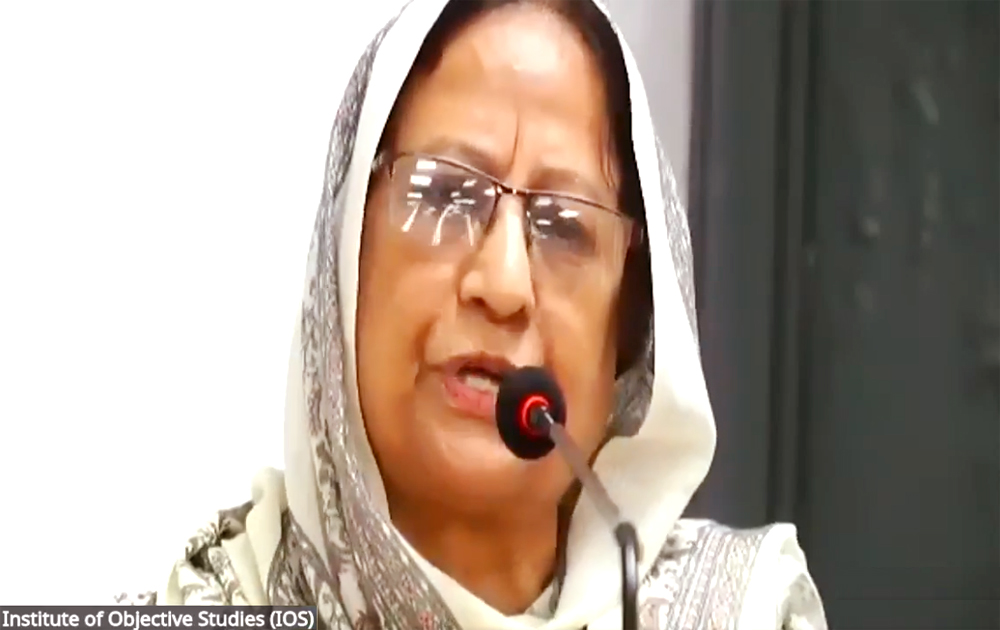
The vice-chairperson of the IOS, Prof. Hassena Hashia extended a vote of thanks to the attendees.
Go Back